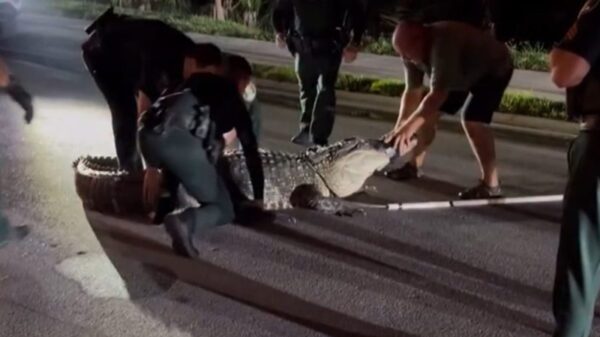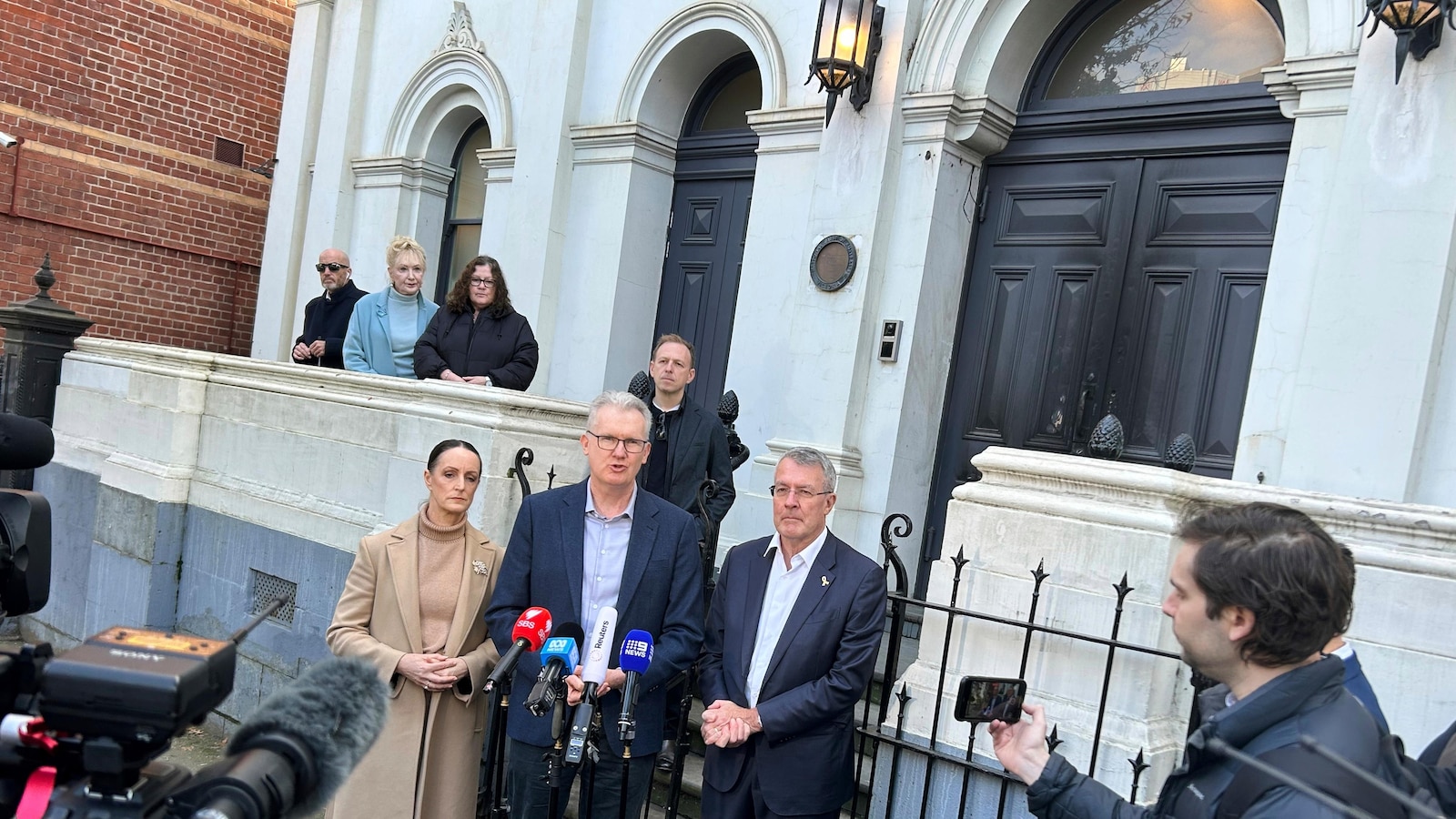MELBOURNE, Australia — In a disturbing escalation of antisemitic violence, a man has been charged with arson following a fire at a Melbourne synagogue. The incident has raised alarms over rising tensions in Australia’s second-largest city.
Angelo Loras, 34, appeared in the Melbourne Magistrates’ Court on Sunday, facing charges of arson, endangering life, and property damage. He was also charged with possessing a “controlled weapon” at the time of his arrest on Saturday, although the nature of the weapon was not disclosed. Loras, a resident of Sydney, did not enter a plea and was denied bail, with his next court appearance scheduled for July 22.
Details of the Attack
The attack occurred on Friday night when flammable liquid was set alight at the entrance of the East Melbourne Synagogue, also known as the East Melbourne Hebrew Congregation. Inside, 20 worshippers were attending a Shabbat meal. Fortunately, the congregation managed to escape unharmed through a rear exit, and firefighters quickly contained the blaze to the entrance of the historic 148-year-old building.
This incident was the first of three antisemitic acts reported in Melbourne over Friday night and early Saturday morning. Authorities are investigating potential connections between the synagogue fire and two other incidents targeting Jewish-owned businesses.
Other Incidents in Melbourne
On the same night, around 20 masked protesters disrupted an Israeli-owned restaurant in downtown Melbourne. The protesters, chanting “Death to the IDF” — a reference to the Israel Defense Forces — vandalized the restaurant by cracking windows, flipping tables, and throwing chairs. Police arrested a 28-year-old woman at the scene, charging her with hindering police efforts.
Additionally, a business in Melbourne’s northern suburbs was vandalized with graffiti, and three vehicles associated with the business were set on fire before dawn on Saturday. Police noted antisemitic “inferences” at the scene, and the business had previously been targeted by pro-Palestinian demonstrations over the past year.
Government Response and International Reactions
Home Affairs Minister Tony Burke met with Jewish leaders at the damaged synagogue on Sunday. He emphasized the seriousness of the attacks and the ongoing investigation into potential links between the incidents.
“At this stage, our authorities have not drawn links between them. But obviously there’s a link in antisemitism. There’s a link in bigotry. There’s a link in a willingness to either call for violence, to chant violence or to take out violent actions. They are very much linked in that way,” Burke stated.
Burke condemned the attacks, declaring, “There were three attacks that night and none of them belonged in Australia. Arson attacks, the chanting calls for death, other attacks and graffiti — none of it belonged in Australia and they were attacks on Australia.”
Israeli Prime Minister Benjamin Netanyahu also expressed his concern, urging the Australian government to take decisive action against the perpetrators.
“I view with utmost gravity the antisemitic attacks that occurred last night in Melbourne, which included attempted arson of a synagogue in the city and a violent assault against an Israeli restaurant by pro-Palestinian rioters,” Netanyahu said in a statement.
Context and Historical Parallels
This surge in antisemitic violence in Melbourne is not an isolated phenomenon. Australia, like many other countries, has seen a rise in hate crimes against Jewish communities in recent years. The incidents echo similar patterns observed globally, where geopolitical tensions often spill over into local acts of violence.
Experts in hate crime studies suggest that such incidents are often fueled by broader political and social tensions. Dr. Rachel Klein, a sociologist specializing in hate crimes, notes that “these acts are symptomatic of larger societal issues, where minority communities become scapegoats during times of political unrest.”
Historically, antisemitic violence has often coincided with periods of heightened conflict in the Middle East, reflecting the complex interplay between international events and local community relations.
Looking Ahead
The recent attacks have prompted calls for increased security measures and community support initiatives to protect vulnerable groups. Law enforcement agencies are under pressure to not only solve these crimes but also to prevent future incidents.
Community leaders are advocating for educational programs to combat bigotry and promote understanding among diverse cultural groups. As investigations continue, the focus remains on fostering a safe and inclusive environment for all residents of Melbourne.
The coming weeks will be crucial in determining the course of action by both local authorities and the broader Australian government in addressing and curbing antisemitic violence.





































































